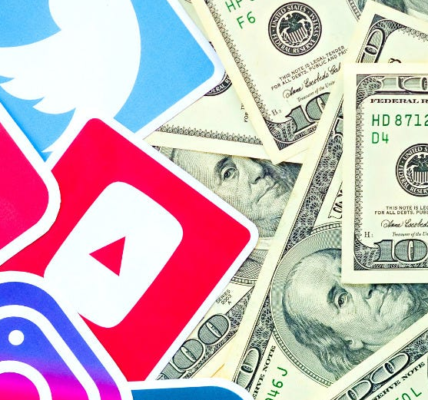What is Flixster? It was a popular social movie discovery service that allowed users to explore new movies, read reviews, watch trailers, and find local showtimes. Launched in 2007, it gained widespread use due to its user-friendly interface and strong community of movie enthusiasts who could rate and review films. Users could also create watchlists and share their favorite films with friends.

Flixster became more prominent after acquiring Rotten Tomatoes in 2010, which is known for aggregating movie reviews from critics and audiences. The combination of these two platforms gave Flixster a strong presence in both casual and critical movie reviews.
Key Features of Flixster:
- Movie Information: Provided detailed information about upcoming and released films, including synopses, trailers, cast details, and reviews.
- User Ratings and Reviews: Users could rate movies and leave reviews, building a community around film discussions.
- Showtimes and Ticket Purchases: It offered a feature to look up local theaters, showtimes, and purchase tickets.
- Integration with Rotten Tomatoes: It displayed aggregated critic reviews, making it easier for users to compare professional and audience opinions.
- Mobile App: The app allowed for easy access to movie details, trailers, and reviews on the go, adding to its popularity.
Relationship to Free Movies:
Flixster itself didn’t directly offer free movies. However, in 2016, Flixster began to integrate with UltraViolet, a cloud-based digital rights locker system, allowing users to stream movies they had purchased digitally. This system was linked to services like Vudu, enabling users to access their purchased films online. Eventually, Flixster shut down its movie streaming service in favor of Vudu, which provided both rental and streaming options, but these were not free.
By 2019, Flixster gradually began winding down its operations, and its movie streaming services were officially transferred to Vudu. Flixster itself was closed in many regions by 2020. It still remains a key part of the early evolution of digital movie discovery platforms, even though it no longer offers services today.
For free movie streaming, platforms like Tubi, Crackle, and Peacock now offer movies at no cost, with ads supporting the free content.

Did Flixster help people find others with similar interests?
Yes,Flixster helped people connect with others who shared similar movie interests through several features:
- User Reviews and Ratings: Users could write reviews and rate movies, creating a platform where movie enthusiasts could express their opinions and see what others thought of a film. This facilitated discussions and connections based on shared tastes and opinions.
- Social Networking Features: Flixster had social features that allowed users to follow friends, see their movie ratings and reviews, and share their own movie experiences. This social interaction helped build communities around shared interests in films.
- Watchlists and Recommendations: Users could create and share watchlists, which enabled them to see what movies their friends were interested in watching. Flixster also provided personalized recommendations based on users’ ratings and viewing history, helping users discover new films and connect with others who had similar tastes.
- Discussion Forums and Groups: While Flixster didn’t have extensive forums, its review and rating system allowed for informal discussions and exchanges among users. Movie lovers could comment on reviews and engage in conversations about films.
- Integration with Rotten Tomatoes: By integrating Rotten Tomatoes, Flixster offered access to aggregated critic reviews and audience scores, which facilitated informed discussions and connections based on critical and audience reception of movies.
Overall, Flixster fostered a community environment where movie enthusiasts could interact, share their opinions, and discover new films together.
Which devices can be used to access Flixster?
You can access Flixster using various devices, including:
- Smartphones and tablets (iOS and Android)
- Laptops and desktop computers (via web browsers)
- Smart TVs (via apps if supported)
- Streaming devices (such as Roku or Amazon Fire TV, if Flixster is available)
Marketing Strategies used by Flixster
Flixster used several marketing strategies to grow its user base and increase brand awareness:
- Partnerships: They partnered with other entertainment and technology companies to enhance their reach. For example, collaborations with movie studios and distributors helped in promoting new releases.
- Social Media Marketing: Flixster utilized social media platforms to engage with users, share movie-related content, and promote their app.
- Content Creation: They created and promoted original content, including movie reviews and ratings, which attracted movie enthusiasts looking for reliable information.
- User Engagement: Encouraging user reviews and ratings helped build a community around the app, driving organic growth through word-of-mouth.
- Cross-Promotion: They often promoted their app through other popular platforms and services, including movie ticketing sites and entertainment news outlets.
- Email Marketing: Sending targeted emails with personalized recommendations and updates helped keep users engaged and informed about new features and content.
- App Store Optimization: By optimizing their app’s presence in app stores with relevant keywords and appealing visuals, they attracted more downloads and users.
- These strategies combined to help Flixster establish a strong presence in the movie and entertainment space.
Social Media Platforms supported by Flixster
Flixster supported several social media platforms to enhance its user engagement and broaden its reach. These included:
- Facebook: For sharing movie reviews, ratings, and engaging with users through comments and likes.
- Twitter: To provide updates, interact with users, and participate in conversations about movies.
- Instagram: To share visual content such as movie posters, trailers, and behind-the-scenes images.
- YouTube: For video content including trailers, interviews, and promotional videos related to movies.
These platforms helped Flixster connect with its audience and promote its features and content effectively.
Current Status of Flixster
As of 2024, Flixster is no longer an active service and has been largely phased out. The brand and its assets were acquired by Warner Bros. in 2016. Following this acquisition, Flixster’s movie streaming services were integrated into Vudu, a platform for purchasing, renting, and streaming movies.
While Flixster’s app and website have been shut down, Vudu continues to operate and provide digital movie services. Flixster’s review and movie discovery features have also been largely absorbed into Warner Bros. ‘s broader digital and media operations.




